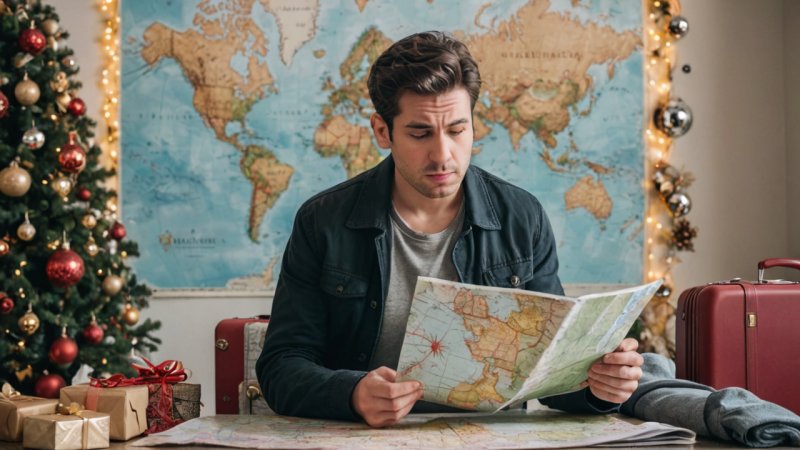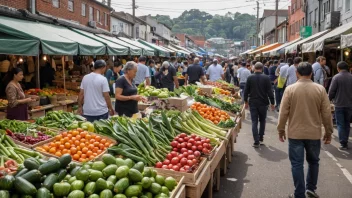Traveling during the holidays is a time-honored tradition, offering a chance to reconnect with family and friends, explore new destinations, and create lasting memories. However, it also comes with its own set of challenges and risks. As travelers flock to airports, train stations, and popular tourist destinations, the potential for crime, accidents, and health issues increases. Therefore, it is crucial to prioritize safety as you embark on your holiday adventures. In this comprehensive guide, we will explore various strategies and tips to ensure a safe and enjoyable travel experience during the holiday season.
Understanding the Risks of Holiday Travel
Before diving into safety measures, it's important to recognize some common risks associated with holiday travel. Understanding these dangers can help you prepare effectively.
- Crowded Spaces: Airports and tourist attractions are often packed during the holidays, increasing the likelihood of theft, accidents, and lost belongings.
- Weather Conditions: Winter weather can lead to flight cancellations, road closures, and hazardous travel conditions.
- Health Concerns: With increased travel comes the risk of illness, especially in crowded places where germs can spread easily.
- Scams and Fraud: Tourists are often targeted by scammers during peak travel times, making it essential to stay vigilant.
Pre-Travel Preparations
Preparation is the first step toward ensuring a safe holiday journey. Here are some key actions to take before you set off:
1. Research Your Destination
Before traveling, take the time to research your destination thoroughly. Understand local customs, laws, and potential safety concerns. Websites like the U.S. State Department or local government advisories can offer valuable insights on travel safety in different regions.
2. Secure Travel Insurance
Investing in travel insurance can protect you against unexpected events such as trip cancellations, medical emergencies, or lost belongings. Ensure your policy covers all activities you plan to undertake while traveling.
3. Share Your Itinerary
Let someone know your travel plans, including your itinerary, accommodations, and contact information. This can be a friend, family member, or coworker who can check in on you during your trip.
4. Prepare for Health Risks
Check if any vaccinations or medications are required for your destination. Pack a travel health kit with necessary medications, hand sanitizers, and masks, especially if you are traveling to areas with health concerns.
Staying Safe During Travel
Once you are on your way, there are several safety measures you can take to protect yourself and your belongings.
1. Be Cautious with Your Belongings
Keep your valuables close and avoid displaying expensive items such as jewelry or electronics. Use anti-theft bags or money belts to secure your belongings. When in crowded places, remain vigilant and ensure your bags are zipped and not left unattended.
2. Use Reputable Transportation Options
When traveling from the airport or train station, use trusted transportation services. If using rideshare apps, verify the driver's identity and license plate before getting in. Avoid accepting rides from strangers.
3. Stay Aware of Your Surroundings
Always be mindful of your environment. If you feel uncomfortable in a situation or place, don't hesitate to leave. Trust your instincts; they are often your best defense.
4. Limit Alcohol Consumption
While it may be tempting to indulge in holiday cheer, excessive alcohol consumption can impair your judgment and make you more vulnerable. Drink responsibly and keep an eye on your drink at all times.
Health and Hygiene Considerations
Maintaining good health practices while traveling is essential, especially during the holiday season when illnesses can spread rapidly.
1. Practice Good Hygiene
Regularly wash your hands with soap and water or use hand sanitizer when soap isn't available. Avoid touching your face, especially your mouth, nose, and eyes.
2. Stay Hydrated and Eat Wisely
Travel can be exhausting, so ensure you drink plenty of water and eat balanced meals to maintain your energy levels. Avoid street food if you are unsure about its safety.
3. Monitor Your Health
Keep track of your health during your trip. If you start to feel unwell, seek medical attention promptly. Most tourist destinations have medical facilities equipped to handle common illnesses.
Emergency Preparedness
Even with the best planning, emergencies can still happen. Being prepared can make a significant difference in how you handle unexpected situations.
1. Know Local Emergency Numbers
Familiarize yourself with the local emergency contact numbers for police, fire, and medical services at your destination. Keep these numbers saved on your phone or written down in case of emergencies.
2. Keep Important Documents Accessible
Store copies of important documents such as your passport, travel insurance, and emergency contacts in a secure but accessible place. Consider using a secure cloud service to store digital copies as well.
3. Have a Communication Plan
If traveling with others, establish a communication plan in case you become separated. Agree on a meeting point and check-in times to ensure everyone stays connected.
Post-Travel Safety
Once you've returned home, it's essential to continue practicing safety measures to protect yourself and your belongings.
1. Monitor Your Accounts
Check your bank and credit card statements for any unauthorized transactions that may have occurred while you were away. Report any suspicious activity immediately.
2. Store Your Travel Documents Safely
Keep your travel documents organized and secure. If you have any sensitive information, such as receipts or documents with personal data, consider shredding them to prevent identity theft.
3. Reflect on Your Experience
Take the time to reflect on your travel experience. Consider what went well and what could have been improved in terms of safety. Use these insights to prepare for your future travels.
Conclusion
Traveling during the holidays can be a joyous experience filled with opportunities for adventure and connection. However, it is essential to prioritize safety to ensure that your journey is memorable for all the right reasons. By preparing in advance, staying vigilant while on the road, maintaining health and hygiene, and being ready for emergencies, you can navigate the holiday travel season with confidence. Remember, a safe traveler is a happy traveler. Plan wisely, stay alert, and enjoy the magic of the holidays, wherever your travels may take you.






